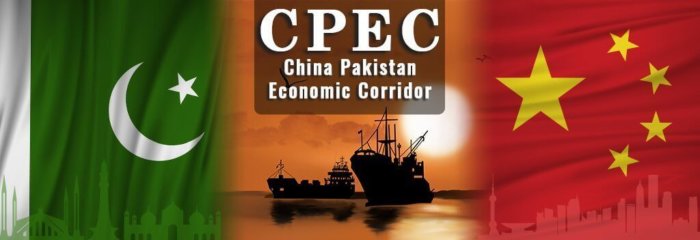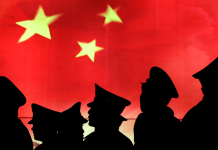Beijing’s ambitious Belt and Road Initiative (BRI) hailed by Pakistan and supported through the China-Pakistan-Economic-Corridor (CPEC) has reportedly hit a new roadblock.
Satellite Image Reveals How China Is Expanding Its Key Airbase, Just 160 KM From Arunachal Border
The Main Line 1 (ML-1) is the biggest project under CPEC worth $6.8 billion. Under ML-1, a 2,655 kilometer railway line will connect Karachi in the South to Peshawar in the North of Pakistan.
Federal Minister for Railways Sheikh Rashid Ahmed said that “the project will revolutionize the railway service in Pakistan”, Dawn had reported last month. He added that the project will create 150,000 jobs and a significant surge in the freight business after completion of the ML-1 project.
Meanwhile, China isn’t keen on the one percent interest rate on the loan demanded by Islamabad for financing the project. Reportedly, the project is financed jointly by Beijing and Islamabad where Pakistan will invest 10% of the project cost as equity and China will extend 90 percent in the form of a loan under CPEC.
“The execution of the project shall be in 3 packages and in order to avoid commitment charges, the loan amount for each package will be separately contracted,” the council had said. To remain in line with debt sustainability guidelines of the International Monetary Fund (IMF), under phase one $2.4 billion worth of work will be done followed by the second phase for $2.7 billion and then $1.7 billion in the third phase.

The project is expected to increase the line capacity from 34 to over 171 trains each way per day. The work on the first phase is scheduled to begin in January 2021. However, now with Beijing raising concerns over the interest rate, the project may get delayed.
Reportedly, the Pakistan Railways have revealed that only Chinese firms are allowed to bid on the ML-1 project. “Under the framework agreement signed between the People’s Republic of China and the Government of the Islamic Republic of Pakistan, only Chinese companies/consortia are eligible to participate in the bidding process,” the invitation read.
Experts talking to Nikkei Asia said that Beijing is using delaying tactics as it doesn’t want to end up with a bad deal. “Beijing doesn’t want to say no [to ML-1], it wants to appear committed in Pakistan, but at the same time it is aware of the risky environment for Chinese investments,” said Jeremy Garlick, an assistant professor at the Jan Masaryk Centre of International Studies at the Prague University of Economics and Business.
“Instead of turning down the request, China delays by offering an investment but putting up an obstacle to the final agreement to delay things,” Garlick told Nikkei Asia.
Border and Road Initiative (BRI) launched the multi-billion dollar CPEC programme in 2015 intending to connect Southeast Asia, Central Asia, the Gulf region, Africa and Europe with a network of land and sea routes. The program was launched by Chinese President Xi Jinping.
China’s BRI has received backlash from western countries. The US has criticized the CPEC programme saying that it is neither transparent nor cost-efficient. It has further warned Pakistan that it is subjecting itself to expensive loans under China’s BRI through which Beijing has pledged more than US$60 billion so far.
However, the warning has landed on deaf ears and Islamabad has vehemently defended the programme saying that this is an opportunity for Pakistan for its economic development.
Pakistan’s government and the opposition have come together and repeatedly hailed CPEC as a “game-changer and a guarantor of a better tomorrow for the country”.
“It (CPEC) is a project that will take Pakistan to new heights [of prosperity],” the prime minister Imran Khan had said adding that Pakistan should learn from the world economic power, China.
Analysts believe that after leaning on China for loans, Pakistan is now left with no other option as the western banks are concerned about the lack of transparency in these Chinese loans.





